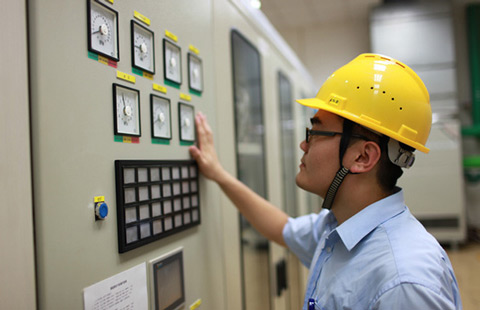Citigroup to issue RMB letters of credit
By Gao Changxin in Shanghai (China Daily) Updated: 2012-06-06 09:13
Citigroup Inc introduced yuan-denominated letters of credit for importers and exporters in Latin America on Tuesday, demonstrating the bank's eagerness to cash in on the current push to make the yuan a global currency.
The new product will allow traders in Latin America to work with partners in China to issue, receive and settle yuan-denominated letters of credit. It will also provide traders with alternative means of financing their trade and mitigating their risks.
"Through the launch of this RMB settlement solution in Latin America, added to our other complementary trade solutions, we are providing our clients in the most active trade corridor in the region with a unique value proposition, which addresses the fast-changing demands of international trade with China, allowing them to be a market leader and a competitive force solely through their partnership with Citi," said Othman M. Gamero, trade services head for Latin America of Citigroup.
Citigroup's new service comes as the value of trade between China and Latin America has increased greatly in recent years. In 2011, China's trade with the region increased by 32.3 percent year-on-year to reach $236.6 billion, according to data from the International Monetary Fund. The value of China's trade with Brazil, its top partner in Latin America, increased by 35.2 percent to reach $84.5 billion.
The value of its exports to the country jumped by 30.2 percent to $31.9 billion and that of its imports from the country rose by 38.4 percent to $52.6 billion.
Altogether, the value of China's exports to Latin America increased by 33.7 percent to $118.4 billion, while its imports from the region increased by 31 percent to hit $118.2 billion.
Since the country first began in 2009 to experiment in a number of provinces with policies meant to move the yuan toward becoming a global reserve currency, more and more global trade has been settled in yuan.
In the first quarter of this year, about 581 billion yuan ($91.2 billion) was used in international trade, up 61 percent from the same period last year, according to the Ministry of Commerce.
China's push to internationalize its currency is providing new growth opportunities to global banks. Chinese banks, with their huge deposit holdings and strong links to local businesses, dominate the domestic market.
But on the international stage, they can barely compete with foreign banks, which have decades of experience in international banking and branches throughout the world.
Citigroup, for example, operates in more than 160 countries and jurisdictions, while Industrial and Commercial Bank of China Ltd, the nation's biggest bank measured by its assets, had branches in just 33 countries and regions by the end of 2011.
Citigroup's new letter-of-credit service follows on the recent establishment of a Latin America trade desk in Shanghai, which is meant to link Chinese businesses with their counterparts in Latin America.
The bank now has China desks in more than eight countries, where it offers services to Chinese businesses.
HSBC Holdings Plc, one of the biggest foreign banks in China, is capable of settling yuan-denominated trade in more than 40 countries and regions.
gaochangxin@chinadaily.com.cn
- Citigroup fined $3.5m on wrong subprime data
- Citigroup says 360,000 affected by hackers
- Citigroup to form China securities joint venture
- Yuan advances to 6.3225 against dollar Tuesday
- China to float 30b yuan in e-savings bonds
- Yuan-yen direct trading 'a win-win game'
- China yuan strengthens to 6.3308 against USD Friday
- $500m infrastructure projects launched in Zhanjiang
- Alibaba and Doraemon join hands to offer 'miraculous gadgets'
- Stock market volatility likely to persist: Analysts
- High-speed railway on trial run in China's farthest north
- China to release guideline on Internet finance
- Achieving an entrepreneurial dream in the countryside
- Companies resume trading as stocks rebound for third day
- China sees exports increase 2% in June, imports decline

















